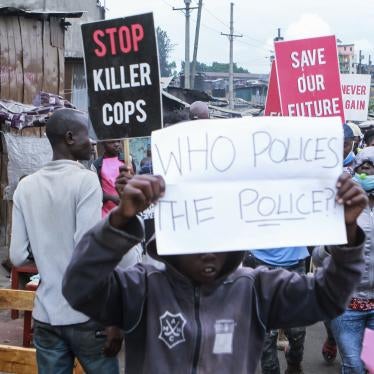Victory for Kenyans Denied Citizenship
Constitutional Court Ruling on Identity System Affects Tens of Thousands

Kenya has planned a general election on August 9, 2022. The country has a history of election related violence and a lack of accountability for human rights abuse. In 2007-8, at least 1,100 died and 650,000 were displaced due to violence resulting from a disputed presidential vote. In the protracted dispute around the 2017 presidential elections, Human Rights Watch documented over 100 opposition supporters unlawfully killed by police and armed groups allied to the government. Although President Uhuru Kenyatta and his opposition rival, Raila Odinga, later agreed to work together, the violence has not been investigated. There have been episodes of violence during the campaigns ahead of the August vote, and there are fears that a dispute over the tallying of presidential results in August could lead to further violence.

Constitutional Court Ruling on Identity System Affects Tens of Thousands

End Criminal Charges for Taking Part in Protests
Authorities Yet to Investigate Killings by Security Forces Linked to 2017 Voting

Authorities Should Also End Media Ban, Protect Rights to Assemble and Protest

Police Threatened and Barred Volunteers from the Site

Constitutional Court Ruling on Identity System Affects Tens of Thousands

Review of Kenya for the 77th Session - February 2025
Crackdowns on Dissent, Civic Space; Impunity for Abuse

Adopt Fundamental Police Reforms, Reparations
End Criminal Charges for Taking Part in Protests
Submission to the United Nations Committee on the Rights of the Child
Strengthen Social Contract to Address Root Causes of Protester Anger

Respect Right to Protest; Investigate Apparent use of Excessive Force
